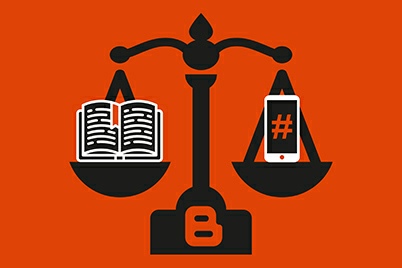

07584-


POST PRODUCTION
Legislation -
With so many social media platforms available, blogging is a fun activity for some, for others it can be a serious business. The subject matter for blogs can range from business and journalism through to interests and activities. With over 6 million bloggers and 77% of internet users interacting with them, it has become one of the main activities online.
But how many bloggers are aware of the legal implications surrounding writing a blog? The laws are everchanging and due to the scale of the internet there is great difficulty policing content. However, it is always worthwhile being aware of some of the laws that apply to content posted online. The following article details some of the legislation that applies to blogs and information posted on the internet.
1. Copyright and IP Law
Copyright and Intellectual Property Law applies to written articles, photographs, video, music and other forms of media. It applies only when the work is written, not just an idea, and basically means that someone can’t use your piece of work and claim it as their own. For instance, if you search on Google images for a picture to use on your blog, you will be breaking copyright law once you attach it to your post. Material that is copyrighted can only be used with legal consent from the owner of that copyright. Some work can be used for free, but normally an attribution to the creator of the piece is required.
2. Cookies
There is a myth that Cookies are some form of intelligence mechanism that track your movements on the internet. In reality, cookies are basically simple text files that are read using the Notebook program on your smart device or computer. They contain two pieces of information – a site name and a unique user ID. When you visit a site for the first time, a cookie is downloaded onto your machine. The next time you visit the site, your machine checks to see if there is a relevant cookie and sends this information back to the site. The site then knows that you have visited before and can therefore tailor what you see with the choices made on the previous visit. Legislation only applies to companies and therefore individual bloggers will not be affected. However, if you work for a company, by law you must ask permission to store and retrieve data about browsing habits. Not all cookies are governed by legislation. Online shopping sites, for example, require cookies to keep track of the contents in your online basket and therefore wouldn’t work without.
3. Libel and Defamation
Libel and defamation are where incorrect information is written that affects the reputation of a person. When deciding if something is libellous, many factors have to be taken into account. If comments are simply hurtful and insulting rather than harming the reputation of the individual, this does not fall under the remit of deformation. Another factor to take into account is how widespread the comment is. This is where newspapers and magazines are at risk from being sued as their readership is huge, whereas a post that has a smaller number of readers is less likely to be taken to court. Also, if a comment is deemed to be in the public interest, it is not considered to be defamatory.
4. Privacy Policy
All bloggers should be aware of privacy laws that will affect them and their business. To comply with the law, all bloggers must have a proper Privacy Policy if they collect personal information from visitors to their website. All bloggers will collect some sort of personal information from their visitors, whether it be information for their email database or to sell products or services. Personal details you may be collecting could be names, email addresses, phone numbers and credit card information. Well drafted Privacy Policy templates are available online to inform your website visitors of how information is collected, what happens to that information and how it is safeguarded.
5. Blog Disclaimers
Disclaimers are used all the time on websites to protect the individual and the business from being taken to court. For example, if you posted a blog with medical information and you were not a qualified medical practitioner, your disclaimer would state that you should consult a doctor for further information. Where possible, your readers should be aware that your blog is your personal opinions rather than a statement of fact.
The above legislation only covers some of the main laws regarding blogging and publishing information on the internet. Whilst it doesn’t cover all laws, by being aware of this legislation, it should give you an advantage over other bloggers.
Please note that the views, thoughts, and opinions expressed in this article belong solely to the author, and not necessarily to any other group or individual. To ensure you are fully compliant with all current legislation, please take legal/professional advice and do not rely solely on the information provided in these articles.

Copyright © 2018-
Terms of Use | Privacy Policy, GDPR & Cookie Policy | Trading Terms





